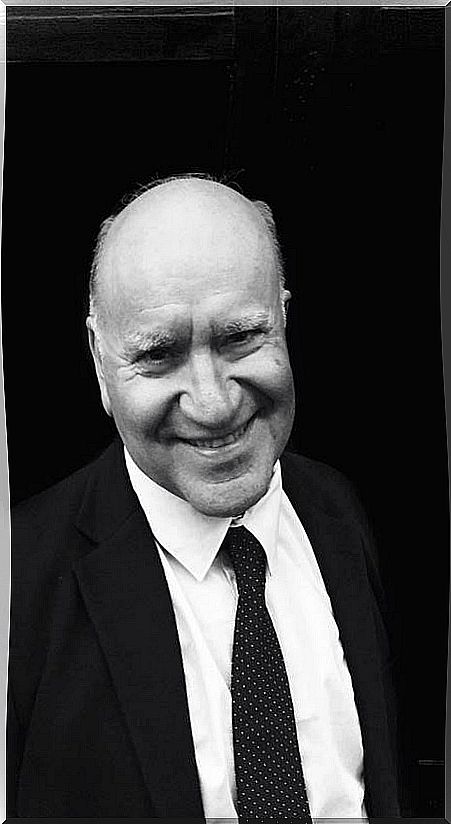“Anxiety Is A Silent Epidemic”
The psychologist and psychoanalyst relates it to our current lifestyle, marked by haste, uncertainties, the desire for success and opulence.

“A woman suffered from panic attacks for 20 years to such an extent that she was traveling in an ambulance where she was administered anxiolytics to alleviate the anxiety caused by travel. One day one of the psychiatrists who treated her told her: ‘Woman, to heal you also have to do your part! ‘. Shocked by this phrase, this woman came to my office and, to my surprise and hers, in about seven months the anxiety ceased ”, explains Fernando Martín about the secret that gave rise to his book The anxiety that does not stop . (Xoroi Edicions).
This psychologist-psychoanalyst (a health psychologist from the Dolto de Palencia Center, graduated in Psychopedagogy and in Philosophy and Education Sciences), talks in this book about a widespread evil, anxiety, which he describes as a silent pandemic.
Interview with Fernando Martín Aduriz
You say that anxiety is something beautiful …
Anxiety is pointing out what we do and what is not going well in our life. Therefore, when traveling, anxiety is a beautiful thing. Because it gives us the opportunity to understand what is going wrong. You have to decipher what the symptom expresses. Currently, in all psychological disorders, more emphasis is placed on tackling their consequences than on knowing where they come from.
“There is a clinic that is based on classifications, diagnoses and ready-to-wear solutions, regardless of who is in front of it. But in reality, anxiety must be treated in each person differently because it fulfills a different function in each subject. The same symptom can appear and disappear, and have several functions throughout the life of the same person “
And can the origin of this symptom be deciphered with the word?
In a weekly practice of listening to people, the anxiety disappears. The question to be answered is what function does this symptom fulfill at that specific moment in the life of a subject and at that special juncture. Of course, do not be in a hurry to eliminate the symptom. Freud already warned that the sanandis fury should be avoided , since the symptom is the most unique thing that each of us has. Represents the singular mark of the subject. Therefore, if we steal it from him when he is serving the subject as a crutch to sustain himself in life, we run the risk of pushing him to the worst. This desire to heal quickly, without first listening to the whole set of what a subject has to contribute and seeing what the meaning of this symptom makes, can be dangerous. Let it continue to do its job until the subject is ready and can be released. As Joyce told Jung: “But my daughter does the same as me.” And Jung replied: “Yes. But where you swim, she drowns ”.
We tend to cover anxiety by eating too much, drinking, playing, working excessively …
People do what they can when the phenomenon of anxiety appears. People say it clearly: “I try to calm my anxiety with …”. And there opens a long list of practices that temporarily reassure when what is not going appears, when the hole is very large in the face of the difficulties of living. Each one goes back to a series of objects that plug that hole through which one’s life goes a bit. But we forget that there must be a hole in our life because, if there is no fault, there are no desires. They both go hand in hand. Without fail there is no desire. Many subjects tell us: “But I do have everything.” It is preferable to be in the logic of “not all” than in the logic of “all”. Because if someone satisfies all the wishes, they stay flat.
“A lot of people ask for guidelines to overcome heartbreak and the only advice I give is: ‘Never ask for guidelines.’ And it is that this symptom is not at the same service when someone is obsessive, than in a hysterical picture, in a phobic picture, or in a child, an adolescent or an elderly person ”.
So, in order not to have anxiety, do you have to know how to quit?
Yes. Knowing how to lose is approaching a life without anxiety. Of course, knowing how to lose without identifying with the loser. We are talking about how everything cannot be, about abandoning that obsession with success. Faced with failure, one always has the possibility of recovering, on the other hand it is easy for one to die of success. You also see a lot of anxiety that arises from doubt. There are those who assure that the cause of anguish is doubt, but it is just the other way around. Because the doubting subject knows that once he makes the decision, there will be no going back. That is why the subject prefers to remain in the choice between A and B, avoiding the moment of losing, since when he chooses A he loses B, and losing is precisely what he does not want.
Can we relate anxiety to this obsession with success?
The age helps us to speak of anxiety as a silent epidemic. But today we have a very big problem with excess ego. It is the disease of self-love. People say they have self-esteem problems, but we find more and more people before whom the job to carry out is to decomplete a bit, because they have a huge ego. Narcissism is a prison because the narcissistic subject never looks at the other, he is always looking at himself. He is not capable of establishing any social bond nor does he really come into contact with the other. Organize everything for the greater glory of your ego. This conceited subject, who invites us to walk towards personal triumph, is very typical of our time. This long journey that leads to success, as it is impossible to sustain for long, takes subjects to the limit and they are forced to resort to anxiolytic. More and more millions of people need to take one every morning to calm down.
“Knowing how to lose is approaching a life without anxiety, but without identifying with the loser.”
What can a person do to get out of this spiral?
Lacanian-oriented psychoanalysis has been saying for a long time: the solution to psychological problems passes through the construction of a social bond. Talk with friends, do social activities … It is about creating social ties that solve the autism of enjoyment and the danger of isolation that the formula leads to: “Take the pill and shut up.”
But sometimes all that is sacrificed in order not to “fail” in life …
As the romantics of the 18th and 19th centuries German used to say: “The noblest thing is failure.” Why? First, because you just have to see the face that those who succeed have. Second, because from failure one can always recover. However, recovery from success is very difficult. In this society of opulence and the cult of money, immersed in the masculine logic of having – as opposed to the feminine logic of being – there are many people (men and women) who lose their lives because they dedicate it entirely and exclusively to storing goods and services. And later, to tell how much they have. It would be good to be able to conspire so that the subjects (men and women) placed in the masculine logic would go on to embrace the feminine logic.
You link the distress to another current epidemic: obesity.
Some studies claim that in 2035, 8 out of 10 men will have obesity problems and 3 out of 10 women too. If these figures are true, it means that many Spaniards have gone to work to fulfill this statistical design. And if they have, it means that the way they have found to plug “the lack” is food, adorned with a whole song in favor of the enjoyment of the oral impulse.
“The prevalence of obesity is a very serious problem that I think has to do with anxiety. The love for gastronomy, restaurants and all the organized social activity in the face of the oral impulse is an attempt to calm it via a food object ”.
Is love sickness also a cause of anxiety?
Yes. Behind anxiety also hides the question: “What am I to the other?” Many subjects consult for a diffuse psychological picture with many characteristics of anxiety (insomnia, discomfort at work …) and when we pull the rope, we find that behind all this there is a bad love. When the desire of the other becomes very present, this awakens anguish. And it is that when the other wants something from us, he treats us as an object, mutilates us, he cannot want our whole being, but a part of our body. Many anxieties are related to the impossible vision of the object separated from the body and the subject wonders what the other wants from him, because he follows in the logic of the whole. On the other hand, the life of a couple (traveling a lot, meeting only a few moments …) enhances this anguish. The fact of choosing a partner, a very modern phenomenon, also influences.
How does that affect?
Before you couldn’t choose your partner any more than your profession could be chosen: if your father was a milkman, so are you. We have too many choices and too many uncertainties before us. So much so that not even one can be sure that the family into which one is born will always be the same and will not change, that a sister will not end up becoming a brother. Of course, work is no longer forever, but can change at any time. The certainties are going to disappear completely. But we need a few certainties to live.
“Behind the cases of anguish many times there is a love sickness. And it is that when the other wants something from us, he treats us as an object, he mutilates us”.
Will it ever be understood that all this is not reversed with pills?
The problem is not only that there are many Spaniards who consume anxiolytics, but that psychiatrists and psychologists also consume them. It seems that they need to calm down every morning, which makes us pessimistic when it comes to thinking that this phenomenon of mass consumption of anxiolytics ends. And anxiety is not cured by taking a drug. Worse still, the pill leads the patient to adopt a passive attitude and not ask the questions necessary to heal.
You say that writing can be a good anxiolytic …
As María Zambrano used to say, “what cannot be said, must be written.” In clinical experience we see that writing contains and stabilizes. It is good for the madman to write, it calms him down and reassures him, although sometimes it is not enough. Those who work with insane in the asylum also claim that many are constantly writing. After all, one writes to reconcile with the world.








